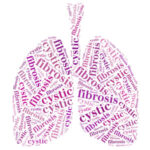 Talking about CF
Talking about CF
Being able to communicate with your partner is an important part of any relationship. When you have CF, your treatments, airway clearance, and exercise all take up a lot of time. This makes it especially important to talk with your partner about the details that are involved in your care in order for you to stay healthy. Also, being able to tell your partner how you are feeling is a way to build trust and enhance your relationship.
Explaining CF to someone who doesn’t know a lot about it may be frustrating and tiring at times. One thing you can do to help others understand the details of your CF and your medical needs is to use resources on this website or at http://www.cff.org. You can also bring your partner to your CF clinic appointment(s) to see what your visits are all about and introduce them to your CF team.
Talking about Sexual and Reproductive Health
CF can have a variety of effects on the sexual and reproductive health of women, such as delayed puberty, more coughing or difficulty breathing during the menstrual cycle, urinary incontinence, yeast infections, coughing during sex, and special considerations around what type of contraception to use, fertility, and pregnancy. If you are experiencing any of these issues or are worried about anything else, you should feel comfortable sharing these concerns with your partner.
It’s normal to feel embarrassed to talk about these things, however, these conversations are important to have, and with time, it will get easier. Here are some examples:
- Try telling your partner if your CF symptoms get worse during certain times of your menstrual cycle.
- “Sometimes during certain times of the month, I cough more and may feel tired.”
- Talk about what feels good and what doesn’t if you are having sex.
- “This position really makes it hard for me to breathe and makes me cough more. Can we try something else instead?”
- Try to be open and honest if you are having symptoms so your partner can be supportive.
- “I am going to try to tell you when I’m feeling well enough to have sex or when I’m feeling like I a need a break, so sex is more fun for the both of us.”
Having a conversation about preventing sexually transmitted infections and/or pregnancy (if you are having sex with a male partner) is important for everyone, regardless of whether or not you have CF. Talking to your partner about condoms or dental dams may seem awkward at first. Try your best to be open with your partner, as it will be easier to discuss things such as how to prevent sexually transmitted infections. Your partner cares about you and should not have a problem agreeing to use protection every time you have sex. Making a plan to use protection and both partners following through when you have sex is an important part of being in a sexual relationship.
If you are at a point where you are thinking about pregnancy or having a child, it is important to have an honest conversation with your partner about how CF affects that decision. This conversation is also an opportunity to answer questions your partner may have and a way for you to express your feelings and concerns about starting a family. Your partner will likely be grateful for the information as it will help him/her better support you, which they may or may not know how to do without your guidance. It is also important to think about how you will balance caring for yourself and caring for a child. At different times you will need extra help from your partner and support network in order to stay healthy and provide child care. Many people with CF struggle with how to talk with their partners about these issues. Your CF team can help.
Our health guides are developed through a systematic, rigorous process to ensure accuracy, reliability, and trustworthiness. Written and reviewed by experienced healthcare clinicians from Boston Children's Hospital, a Harvard Medical School teaching hospital and consistently ranked as a top hospital by Newsweek and U.S. News & World Report, these guides combine clinical expertise, specialized knowledge, and evidence-based medicine. We also incorporate research and best practices from authoritative sources such as the CDC, NIH, PubMed, top medical journals, and UpToDate.com. Clinical specialists and subject matter experts review and edit each guide, reinforcing our commitment to high-quality, factual, scientifically accurate health information for young people.